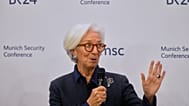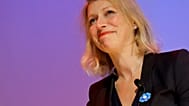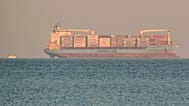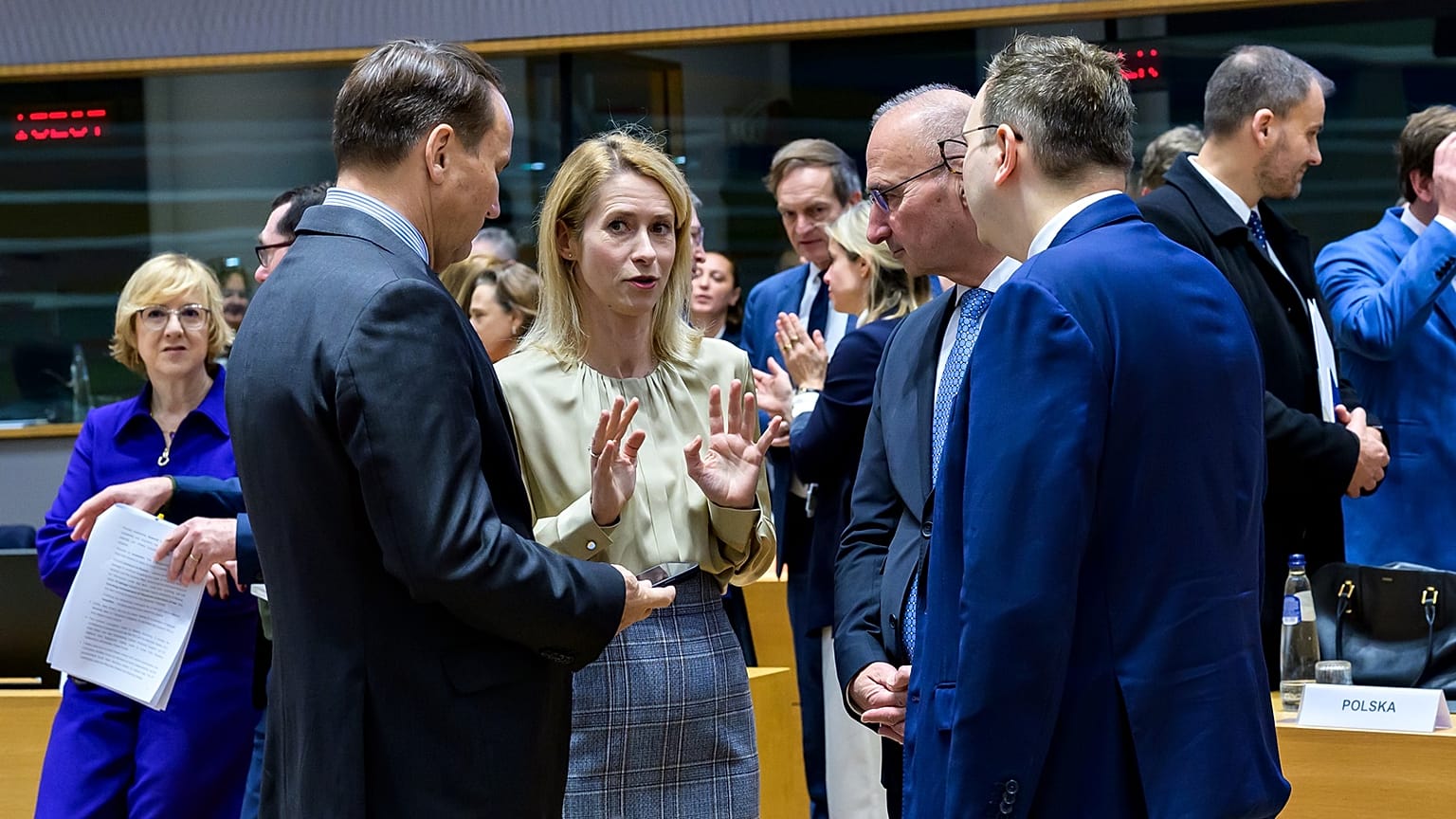Ever since Russia began its full-scale invasion of Ukraine in 2022, Brussels and European capitals have been clear that they expect to play a role in any peace settlement.
The European Union is pushing back against a 28-point plan to end the war in Ukraine, reportedly being drafted behind closed doors by the US and Russia, demanding that any diplomatic attempt must have Kyiv and European leaders at the table.
 ADVERTISEMENT
ADVERTISEMENT
 ADVERTISEMENT
ADVERTISEMENT
The plan, first reported by US outlet Axios, is said to include terms that would be highly disadvantageous for Ukraine, such as the complete surrender of the Donbas, which Russian forces have failed to entirely control, and limitations on the armed forces.
The revelations emerged in the lead-up to a meeting of EU foreign affairs ministers in Brussels, where Russia's war of aggression dominated the agenda.
"What we, as Europeans, have always supported is a long-lasting and just peace, and we welcome any efforts to achieve that," High Representative for Foreign Affairs Kaja Kallas told reporters on Thursday morning. "Of course, for any plan to work, you need Ukrainians and Europeans on board. This is very clear.
"(Vladimir) Putin could end this war immediately if he'd just stop bombing civilians and killing people, but we haven't seen any concessions on the Russian side."
Asked if there had been any European engagement in writing the reported plan, Kallas said: "Not that I know of."
Dutch Foreign Minister David van Weel also confirmed Europe's non-participation.
"No, we have not been involved in the plan. I don't know if Ukraine has been involved in the plan. But what's important for us is that whatever peace plan is on the table, Ukraine is behind it," van Weel said.
"Without the buy-in of Ukraine, you won’t get the support of the Europeans."
France's Jean-Noël Barrot and Denmark's Lars Løkke Rasmussen, meanwhile, called again for an immediate and unconditional ceasefire as an indispensable starting point. The position, also endorsed by Kyiv and Washington, has been firmly refused by Moscow.
"Discussions should start with a ceasefire on the contact line that allows for negotiations on the question of territories and on the question of security guarantees," Barrot said.
"The only obstacle to such ordered discussions, so far, is Vladimir Putin."
Rasmussen said it was important to establish whether the "big boys", meaning US President Donald Trump, also supported the plan, which is reportedly being spearheaded by Steve Witkoff, his special envoy for the Middle East.
Witkoff is a controversial figure in Ukraine and Europe due to his tendency to uncritically embrace the Kremlin's talking points.
"You can't bring peace to Ukraine without the Ukrainians and the Europeans," Rasmussen told reporters. "We should stand up for Ukraine."
Europe on the sidelines?
News of the US-Russia plan has brought back uncomfortable questions on whether the EU risks being sidelined in the peace process, despite being the largest backer of Ukraine's fight for freedom.
Since Trump's re-election, the bloc has been alternately involved and excluded from the debate, fuelling the impression that Americans do not care about its views.
"I don't see the big tragedy," said Lithuania's Kęstutis Budrys, adding Europe would take an active role in the "new phase" should there be one and defend the principles of sovereignty and territorial integrity.
"If there's something related to Europe, we are Europe, and we have to discuss what is Europe and our security."
As reports of the 28-point plan made international headlines, US Secretary of State Marco Rubio attempted to mollify Western concerns.
"Ending a complex and deadly war such as the one in Ukraine requires an extensive exchange of serious and realistic ideas. And achieving a durable peace will require both sides to agree to difficult but necessary concessions," Rubio said on social media.
"That is why we are and will continue to develop a list of potential ideas for ending this war based on input from both sides of this conflict."
Thursday's meeting of foreign ministers represents the first political discussion on the European Commission's "options paper" to support Ukraine's military and financial needs in 2026 and 2027, estimated to be about €135 billion in total.
One of the options would use the immobilised assets of the Russian Central Bank to issue a zero-interest reparations loan to Ukraine, a project without precedent. The other two options would entail the borrowing of fresh money on the markets, which could be a challenge for highly indebted countries weary of taxpayers' and investors' backlash.
Sweden's Maria Malmer Stenergard was one of those who backed the reparations loan on Thursday morning, describing it as a "good start" to ensure justice.
Stenergard called for the bloc's strategy to focus on two main strands: more assistance for Ukraine and more pressure on Russia. This, she said, would "change the equation" and force the Kremlin to take the peace negotiations seriously.
"There can be no peace without Ukraine, and Europe has to be at the table," she said. "There are a lot of talks about different talks."














